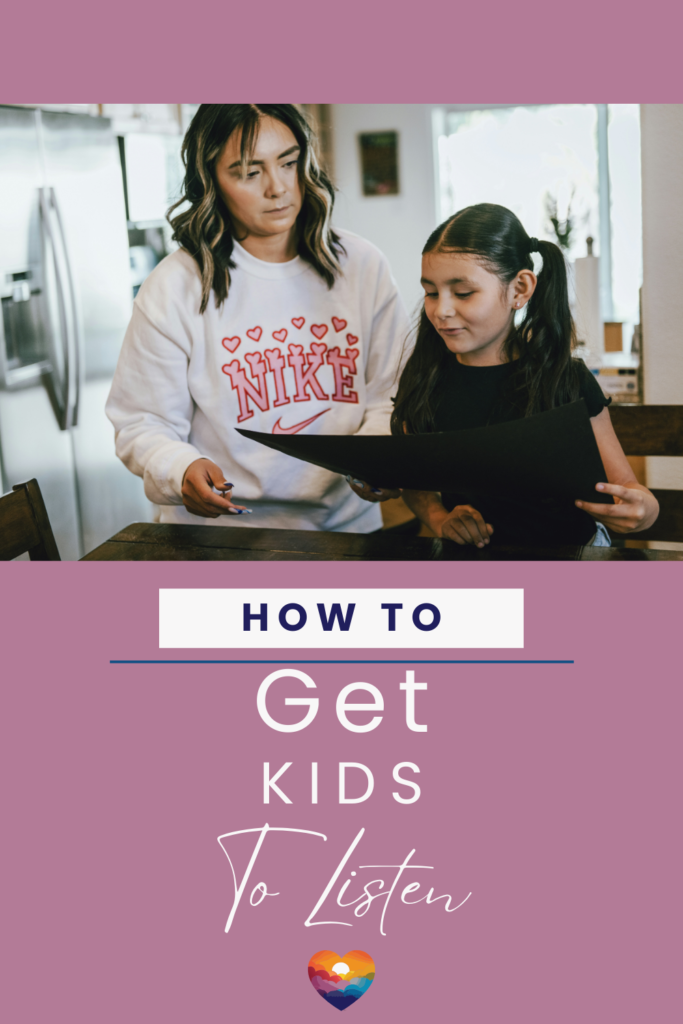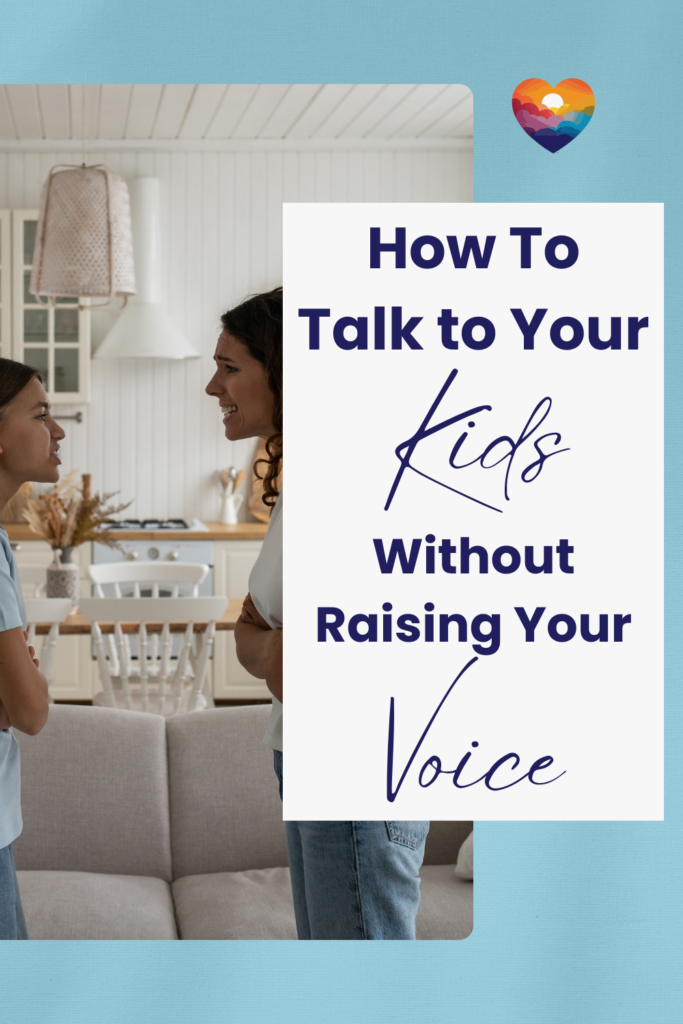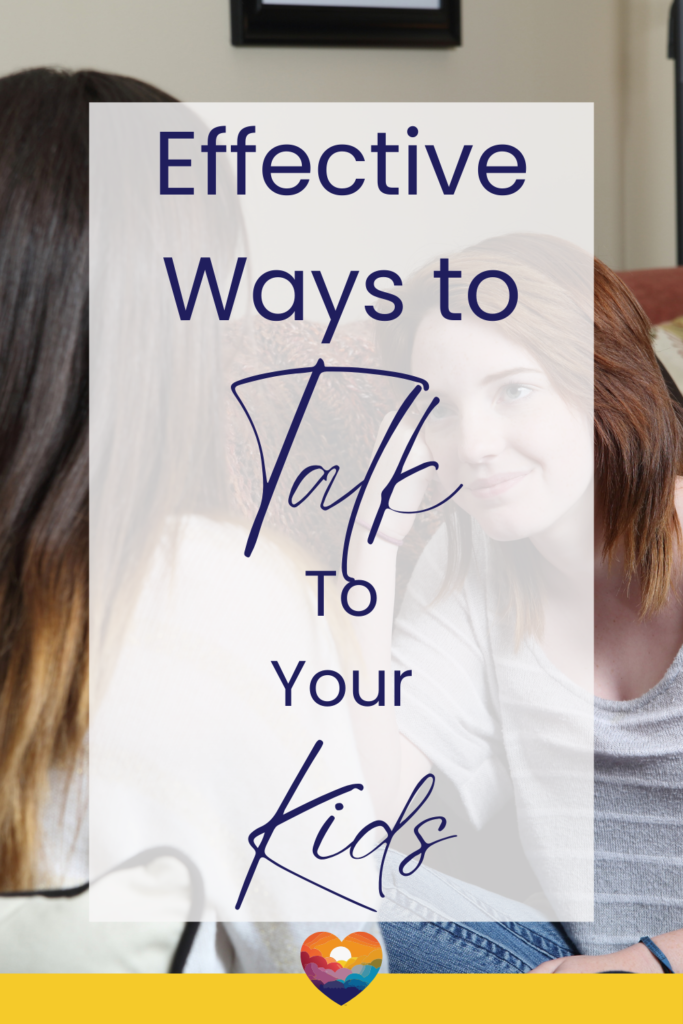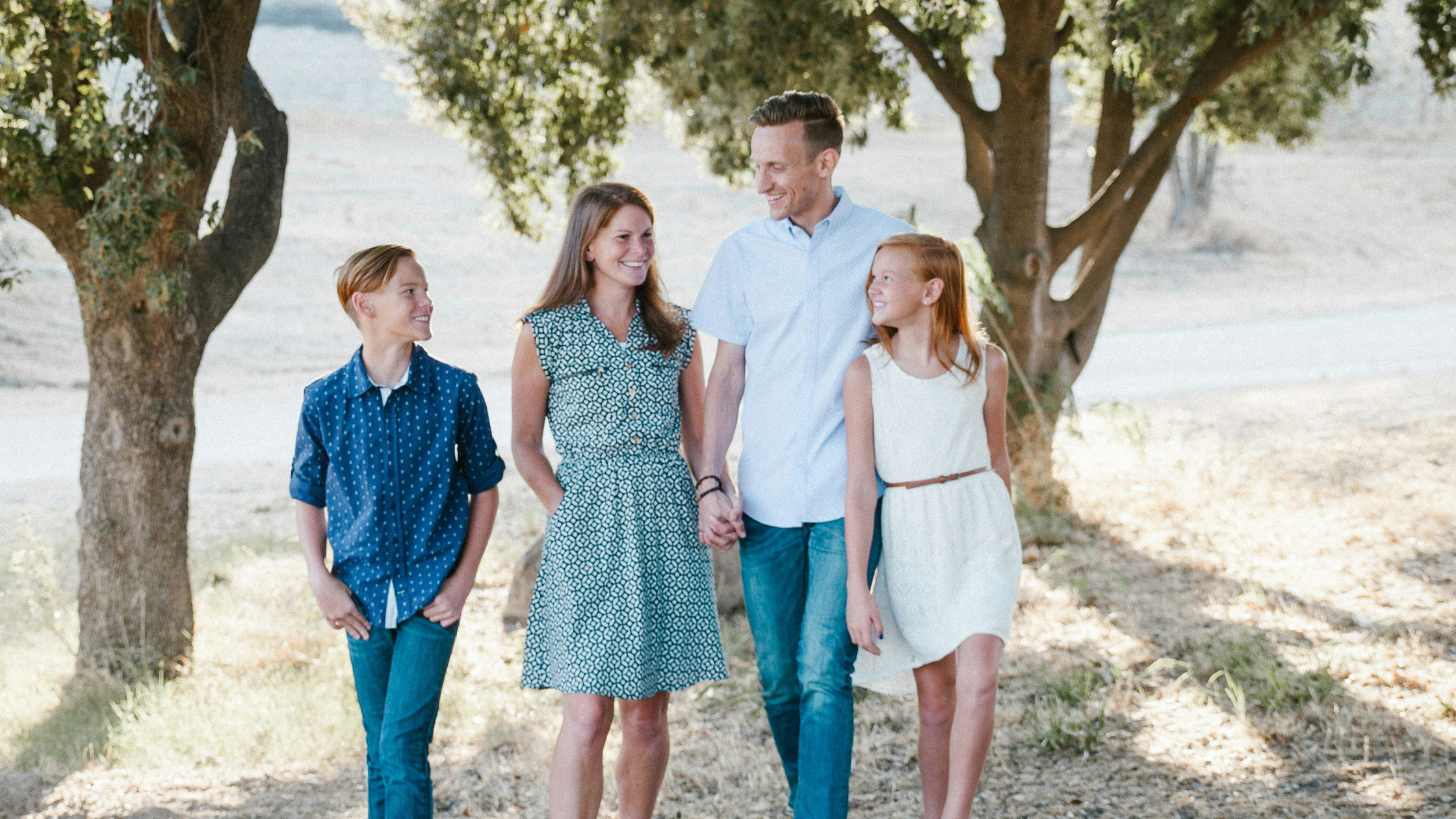How you communicate matters
Developing the most effective communication skills for talking to your kids is an important part of parenting. But knowing effective ways to talk to your kids so they will listen can feel difficult at best and impossible at worst.
Communication can be a minefield in any relationship. If you are wishy-washy in your communication, it leaves the door open for misunderstandings, anger, or resentment.
However, when you communicate effectively with your kids, your needs as a parent can be met more easily. You empower yourself and can connect more deeply with your child.
Plus, effective communication is hugely respectful for the listener, too.
Your child will have the greatest chance of successfully engaging with you if you are clear in your words and actions.
1. Ask for what you want
It seems obvious, but it is trickier than you think. People spend so much time saying, “Don’t do this,” or “Don’t do that.”
Although this language is direct, it doesn’t give kids enough information to actually do what you want them to do. It doesn’t promote the behavior you are looking for.
It can promote undesired behavior.
Try swapping out “don’t” with respectful “do’s”:
- “Don’t touch anything,” becomes, “Put your hands in your pockets while we are waiting in line.”
- “Don’t go in there,” is swapped out for, “Stay in the hallway. Your sister wants privacy in the bathroom.”
- “Don’t eat in the family room,” becomes, “Please eat at the kitchen table.”
2. Ditch the vague language
Kids are not adept at sarcasm or ambiguous language. They need concrete language.
You are setting yourself up for frustration (and setting them up for failure) if you don’t ask for exactly what you’d like. Just think about how frustrating it is to please a boss who does not give you the guidelines you need to be successful!
That is how kids feel when they receive wishy-washy words or flowery language:
For instance, “Go outside and do something,” is too open-ended. Kids may go out and entertain themselves, but you might be horrified at their choices! A more clear command might be, “Go outside and play. You can ride bikes, play on the swing set, or use sidewalk chalk. Your choice.”
Likewise, saying to kids that you’ll read or pay attention to them “in a second” is meaningless to them. Give kids concrete timeframes so they don’t feel they need to beg (or bug you) for attention.
Instead of saying, “I’ll play with you in a minute,” say, “When this pile of laundry is folded, I will read you a book.” Instead of saying, “You can have a treat later,” you can say, “When you are done with your homework, I will make brownies.”
When it comes to talking to your kids, obtuse phrases are confusing. Tell your child the desired behavior you expect.
For example, “I wouldn’t do that if I were you,” becomes, “Please touch the shelf gently. If you shake it, something may fall and hurt you.” Or, “What do you think you’re doing?” becomes, “Use markers on paper, not the floor.”
3. Shift from ‘you’ statements to ‘I’ statements
It is easy to fall into the “you” trap as a parent. The problem is when you focus too much on “you,” you rob kids of the opportunity to take responsibility for themselves and their actions. By making the shift to “I” statements, kids can begin to learn how their actions impact others. This kind of language gives them respectful opportunities to change.
For example:
- “You are so annoying,” is more respectful when it becomes, “I don’t want to play with you because I’m not feeling well.”
- “You are a slob,” becomes, “I need you to pick up these Legos because I just stepped on one and it hurt my foot.”
- “What are you talking about?” becomes, “I don’t understand. Can you please explain it again?”
4. Allow communication to be a two-way street
Even at young ages, kids can be a part of a dialogue. Speaking with kids — and not at them — allows kids to value their voices and opinions.
Plus, feeling safe to stand up for themselves and their beliefs nurtures their confidence. When you allow communication to be a two-way street, your kids are more likely to feel safe talking with you.
Build their verbal and conversation skills when they are young, and you’ll be setting yourself up for more open conversations later on. Not only will this help your relationship with your child, but it will also help your child stand up for themselves on the playground, in friendships, and even in the workplace one day.
5. Be nice
No matter how drained, frustrated, or flustered you feel, kind words are cheap and cheerful. They demonstrate appreciation, love, and safety. And kids who feel valued thrive. They make better choices. They enjoy a greater level of self-worth and confidence.
It takes but a second to say, “Thank you. You really helped out just now.” With one kind word, your relationship with your child expands. It models that, no matter how exhausted someone feels, it is important to show appreciation. It models that, even if you’ve messed up, you’re still loveable. It models that, even if the world is a scary place, your child is safe.
Examples include:
- “I loved watching you play nicely with your brother.”
- “It meant so much to have your help cleaning up tonight. It made my evening more enjoyable.”
- “You really worked hard cleaning your room. Great job.”
- “I love you.”
Communication is everything with kids
Good communication skills are the key to nurturing, healthy relationships with your children.
Parents who model effective communication not only reap the rewards of enjoying closer relationships with their kids, but they also gift their kids with the skills needed to succeed in future relationships.
Kids who grow up where effective communication is modeled at home are emboldened to get their needs met in healthy ways as adults.
They grow up more empowered and with greater self-esteem. Their relationships and friendships will be easier to navigate. Their work life will be less stressful.
These are just a few of the reasons why improving your communication skills can benefit both you and your child.
Not everyone was taught good communication skills as kids, but it is never too late to learn them.
So if these communication skills do not come naturally to you, keep practicing and avoid beating yourself up if you make mistakes. You don’t need to be perfect. If you mess up, try again.
Your relationship with your kids is worth it.
Effective communication is essential in building strong, healthy relationships with your children. And while mastering these skills can be challenging, it’s always worth the effort. If you’re looking for even more strategies to strengthen your parenting, check out this insightful guide on How to Use Positive Parenting to Raise Great Kids. It gives practical tips to help you create a nurturing and supportive environment for your child.




